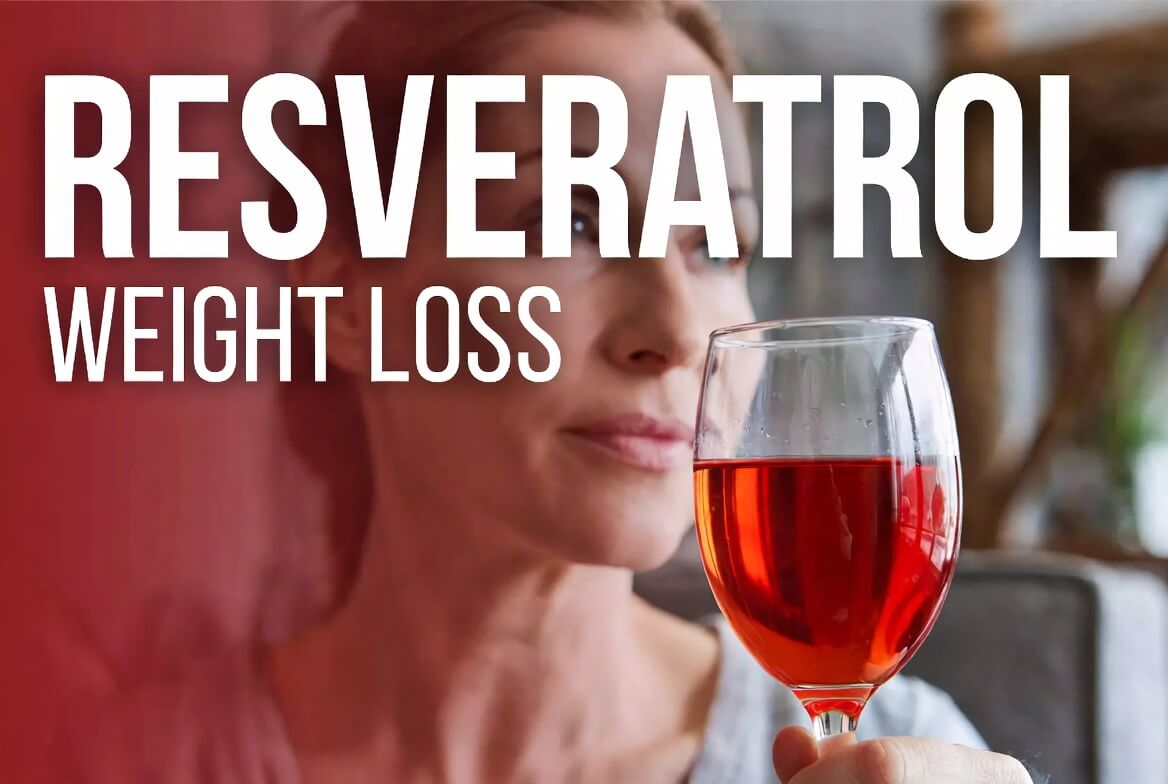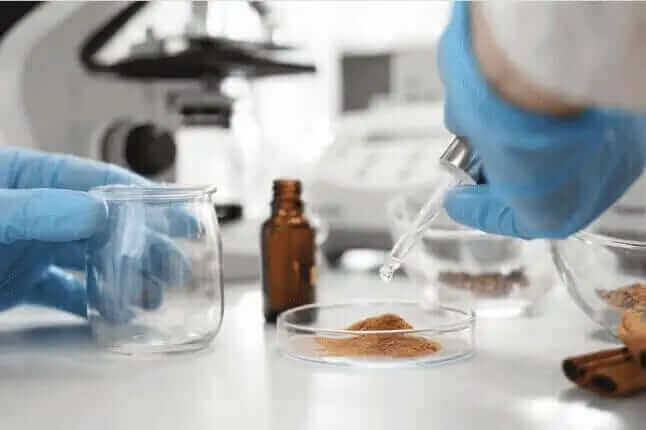Resveratrol Weight Loss: What the 2025 Science Actually Says
You’ve seen the headlines: the "red wine compound" that "burns fat." But can a supplement actually help you lose weight? The answer is more complex (and far more interesting) than a simple "yes" or "no" about Resveratrol weight loss.
We're not talking about a magic pill. We're talking about metabolic support. The latest wave of human clinical research, including major meta-analyses from 2023 and 2024, shows resveratrol's power isn't in "melting fat" overnight. Its true strength lies in supporting your body's core metabolic machinery.
This article digs past the hype to show what the latest scientific evidence says about resveratrol's role in weight management.
Key Scientific Takeaways (TL;DR)
- Modest But Real Effects: Multiple 2020-2024 meta-analyses (the highest form of evidence) conclude that resveratrol supplementation does show a modest but statistically significant positive effect on weight, BMI, and fat mass, especially in individuals with metabolic conditions.
- It's a Metabolic Supporter: Resveratrol's primary role is not as a direct "fat burner." Instead, it helps optimize the underlying systems of metabolism, insulin response, and fat cell function.
- The 3-Way Mechanism:The latest research points to three main pathways:
- SIRT1/AMPK Activation: It activates "longevity genes" that mimic the metabolic benefits of calorie restriction.
- Insulin Sensitivity: It shows a strong ability to help improve the body's response to insulin, which is critical for healthy weight management.
- "Fat Browning": It may help encourage the body to convert energy-storing "white fat" into energy-burning "brown fat."
What Is Resveratrol, Anyway?
First, let's get a clear definition.
Resveratrol is a natural polyphenol, a type of compound found in plants. It acts as a protective antioxidant. While it's famously found in the skins of red grapes (and thus, in red wine), it's also present in blueberries, peanuts, and Japanese knotweed.
For decades, it was known simply as a powerful antioxidant. But in the early 2000s, scientists discovered it had a profound effect on a family of proteins called sirtuins. This discovery is the key to understanding its link to metabolism and longevity.
The New Science: How Resveratrol Really Works for Weight Management
The old claim was "it burns fat." The new science shows it's a systemic process. Resveratrol acts like a master switchboard operator, influencing key signaling pathways that tell your body how to handle energy.
Here are the three main mechanisms confirmed by recent research.
1. Finding #1: It Activates Your "Longevity Genes" (SIRT1 & AMPK)
This is the most critical mechanism. Resveratrol is a potent activator of SIRT1, a protein often called the "longevity gene."
Why does this matter for weight?
SIRT1 activation, in turn, switches on another key metabolic sensor: AMPK (AMP-activated protein kinase). Think of AMPK as your body's "fuel gauge."
- When AMPK is low (like after a big meal), your body stores energy. It builds fat.
- When AMPK is high (like during exercise or fasting), your body burns energy. It starts oxidizing fat (fat-burning) and boosts mitochondrial production.
Resveratrol essentially "tricks" the body into thinking it's in an energy-restricted state. By activating the SIRT1/AMPK pathway, it encourages your cells to stop storing fat and start using it for fuel, all while supporting cellular cleanup (autophagy). A 2023 review in Molecular Nutrition & Food Research reaffirmed this pathway as the primary mechanism for resveratrol's metabolic benefits.
2. Finding #2: It Strongly Supports Insulin Sensitivity
This might be resveratrol's most significant and most proven benefit. Insulin is the hormone that tells your cells to absorb glucose (sugar) from your blood. When you are "insulin resistant," your cells don't listen well. Your body has to pump out more insulin, and all that excess sugar and insulin promotes fat storage, especially in the abdomen.
This is where resveratrol shines.
A 2024 meta-analysis published in the International Journal of Obesity looked at numerous human trials. It concluded that resveratrol supplementation consistently and significantly improves glucose homeostasis and insulin sensitivity.
By helping your cells listen to insulin again, it supports:
- More stable blood sugar levels.
- Less need for the body to release excess insulin.
- A metabolic environment that is less prone to storing fat.
This makes it a powerful tool for supporting metabolic health, which is the foundation of sustainable weight management in Resveratrol weight loss.
3. Finding #3: The "Fat Browning" Effect (WAT to BAT)
This is the most cutting-edge (and still developing) area of research. Your body has two main types of fat:
- White Adipose Tissue (WAT) is the "storage" fat. This is the fat on your belly and hips.
- Brown Adipose Tissue (BAT) is the "metabolic" fat. It's packed with mitochondria and its job is to burn energy to create heat.
The holy grail of weight loss research is finding a way to make "storage" fat (WAT) behave more like "burning" fat (BAT). This is called "browning."
A 2022 review in Nutrients confirmed that in numerous animal models, resveratrol does indeed promote the browning of white fat by activating the same SIRT1/AMPK pathways.
While human evidence for browning is still harder to get (it requires complex imaging), the consistent animal data suggests this is a key part of how resveratrol aids metabolic health.
What Do the Human Studies Actually Show?
This is the most important question. Animal studies are great, but we need human data.
For years, human trials were mixed. But as more and better studies have been completed, a clearer picture has emerged through meta-analyses (studies of studies).
- A 2020 Meta-Analysis (Akbari et al.) published in the American Journal of Clinical Nutrition analyzed 36 human trials. The verdict? Resveratrol supplementation "significantly reduced" weight, BMI, fat mass, and waist circumference, especially in subjects with obesity.
- A 2023 Meta-Analysis (J. Chen et al.) offered a more recent review focused on patients with Type 2 Diabetes. It found that resveratrol had "significant positive effects" on improving glycemic control and body weight.
The key takeaway is honesty and context. The results are modest, not dramatic. No study shows people losing 30 pounds from resveratrol alone.
What they do show is that when added to a plan that includes diet and exercise, resveratrol provides a statistically significant boost to weight management and, more importantly, to the underlying metabolic markers like insulin sensitivity and fat mass.
Expert Opinions: What Researchers Are Saying
You don't have to take our word for it. The scientific consensus points toward its role as a metabolic regulator.
As the authors of the 2020 meta-analysis in the American Journal of Clinical Nutrition concluded, "Our findings suggest that resveratrol supplementation may be a promising strategy for... managing obesity and its associated metabolic abnormalities."
Dr. S. H. Lee, a prominent researcher in the field, noted in a 2023 review that the "accumulating evidence from animal studies and clinical trials suggests that resveratrol is a promising biogenic agent for the management of obesity and metabolic syndrome."
The consensus is clear. The science has moved from "Is this a weight-loss pill?" to "How does this powerful compound support the entire metabolic system?"
Safety, Dosage, and How to Take It
What about safety and dosage? Here's what the human trials show.
- On Dosage: Effective doses in human studies vary widely, from as low as 150 mg/day to over 1000 mg/day (1 gram). Many of the positive metabolic effects, especially for insulin sensitivity, are seen in the 250 mg - 500 mg range.
- On Safety: Resveratrol is generally considered very safe and well-tolerated. High doses (over 2.5 grams) may cause mild gastrointestinal upset, but this is rare.
- On Form: Resveratrol is notoriously hard for the body to absorb. Standard resveratrol has low bioavailability. For this reason, micronized or trans-resveratrol forms are heavily preferred, as they are processed by the body much more effectively.
*These statements have not been evaluated by the Food and Drug Administration. This product is not intended to diagnose, treat, cure, or prevent any disease.
The Verdict: Is Resveratrol Right for Your Weight Management Goals?
Let's be real. If you are looking for a magic pill to lose 20 pounds by next month while changing nothing else, resveratrol is not it. Nothing is.
But if your goal is to support your body's underlying metabolic health for the long term, the scientific evidence is incredibly promising.
Think of resveratrol not as a "fat burner," but as a "metabolic systems analyst." It goes to work on the core processes of energy management:
- It helps promote insulin sensitivity, creating a better environment for weight management.
- It activates the SIRT1/AMPK pathway, mimicking the benefits of fasting and exercise.
- It supports the body's ability to use, not just store, fat (potentially through the fat-browning effect).
When combined with a healthy diet and consistent exercise, resveratrol is one of the most science-backed compounds available for supporting a healthy, efficient, and well-regulated metabolism.
Frequently Asked Questions (FAQ)
1. How long does it take for resveratrol to work for weight loss?
Resveratrol is not a fast-acting "fat burner." Most human studies that found positive effects on weight, BMI, and insulin sensitivity lasted for at least 8 to 12 weeks. You should think of it as a long-term supplement for metabolic support, not a short-term fix.
2. Can I get enough resveratrol from red wine to lose weight?
No. Not even close. Red wine contains, at most, about 2 mg of resveratrol per glass. The clinical studies showing metabolic benefits use doses from 150 mg to over 1000 mg per day. You would need to drink hundreds of bottles of wine, which is not recommended.
3. What is the difference between resveratrol and trans-resveratrol?
"Resveratrol" exists in two forms: trans-resveratrol and cis-resveratrol. Trans-resveratrol is the active, stable, and biologically beneficial form that is the subject of almost all the scientific research. Cis-resveratrol is the other, less stable form. When buying a supplement, you want to ensure it is 100% or high-purity trans-resveratrol.
4. Does resveratrol have any side effects?
At standard supplement doses (up to 1500 mg/day), resveratrol is considered extremely safe and well-tolerated by most people. In very high doses (over 2500 mg), some individuals report mild gastrointestinal discomfort. Always consult your doctor before starting a new supplement.
" } }, { "@type": "Question", "name": "Can I get enough resveratrol from red wine to lose weight?", "acceptedAnswer": { "@type": "Answer", "text": "
" } }, { "@type": "Question", "name": "What is the difference between resveratrol and trans-resveratrol?", "acceptedAnswer": { "@type": "Answer", "text": "
" } }, { "@type": "Question", "name": "Does resveratrol have any side effects?", "acceptedAnswer": { "@type":Example: "https://www.revgenetics.com/a/news/resveratrol-lose-weight" "text": "
" } } ] } }






